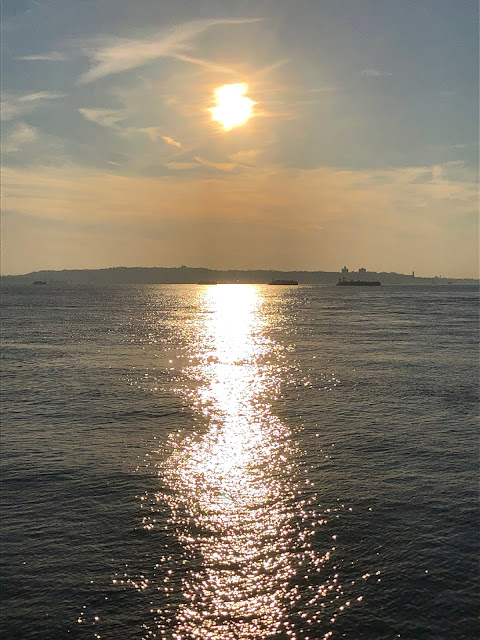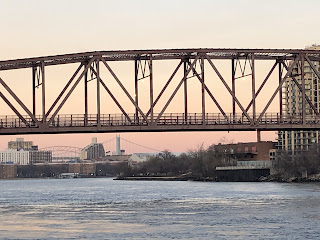In 2000, I did a bike tour through the Pyrenees, from France into Spain and back. I started in Toulouse, where I spent four days. To this day, it's one of my favorite large cities. The people are friendly and it has all of the other things to love about French cities and towns: great food, beautiful public spaces and interesting art. But the thing that leaves me with a warm glow (please indulge me in this analogy/pun) is the light at the end of the day. So much of the city softly blazes as the sun sets among brick buildings. For that, Toulouse is often called la ville rose.
So why did I think about that while riding yesterday? (Well, why wouldn't I?) As we near the winter solstice, the days are growing shorter. So any given ride has a greater chance of ending, or even continuing, into the sunset, under twilight. After riding to the Rockaways and Coney Island, I passed through Clinton Hill--a neighborhood just east of the Brooklyn Academy of Music and Atlantic Center.
The area is probably best known for its old stone churches, brownstones and the Pratt Institute. Nestled among them is a smaller but well-respected university: St. Joseph's. As a longtime presence, it--not surprisingly--shares the neighborhood's architectural and other visual delights.
Those buildings, on Clinton Avenue, are adjacent to St. Joseph's and share many characteristics with its other buildings. They are not, however, part of the university. The exteriors have been almost unchanged since they were built in 1905, in part because the block is one of the city's first designated historic districts.
Whoever lives in those buildings comes home to a maison rose at the end of the day. That might be reason enough to live in them, as so many other parts of this city have less rose and look more and more like they're built with neutral-tone Lego blocks.























.jpg)






